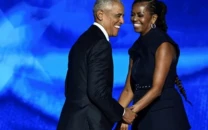Malaysia's Muslim women face more online abuse than others
Most of the women say that it is mostly Muslim men hurling abuse at them online

Women everywhere are vulnerable to abuse online. In Malaysia, women of all races are mistreated, however activists claim that Muslim women face more rage online because of what the society expects from them.
"We are seeing a trend where Muslim women, particularly Malay-Muslims are targeted in a different way, especially when it comes to how they present themselves," says Juana Jaafar, a women's rights advocate, reports BBC.
Twitter steps up effort to curb harassment
The online pubic spaces have been taken over by tabloid and gossip sites and abuses are hurled all over the comment sections.
Jaafar said that this is more of a cultural issue than a religious one. "The religion doesn't encourage this behaviour. There are hadiths that talk about respecting privacy."
A senior gender studies lecturer at Universiti of Malaya said, "These things happen globally, but it does come with an extra layer [in Malaysia], a sense of moral justification that is rooted in quite narrow interpretations of religion."
As more and more young Malaysian women turn to social media - particularly Twitter - to talk about women's issues, these cases of harassment have also become more frequent.
"It's not just about people not liking your views, it's about people bulldozing your entire existence, your self-esteem," a Twitter user who has long been a victim of online violence shared.
"When you give language to a movement that questions the status quo, they get much more insecure," she adds.
In other cases, wearing too much makeup and clothes that are too tight, or being chubby are "crimes" that make women susceptible to gender-based violence.
"The female body is a constant battleground for men to argue [about]. A woman may be covered from head to toe, but someone will still complain that the covering is not baggy enough or long enough," Dyana Sofya, executive committee member of the centre-left DAP Socialist Youth party said.
Most of the women say that it is mostly Muslim men hurling the abuse at them online.
Twitter CEO apologises for allowing white supremacist ad
In most cases, the victims come away physically unharmed but online violence can take a toll on mental health.
In the case of Twitter and Instagram user Arlina Arshad, she confessed that the abuse she received because of her weight led to thoughts of suicide.
Juana Jaafar says, "The counter-propaganda method can be extremely hostile and when they're facing women, it becomes a violent exchange where women are attacked, body-shamed, and policed about their Muslim identities."
This article originally appeared on BBC.



















COMMENTS
Comments are moderated and generally will be posted if they are on-topic and not abusive.
For more information, please see our Comments FAQ